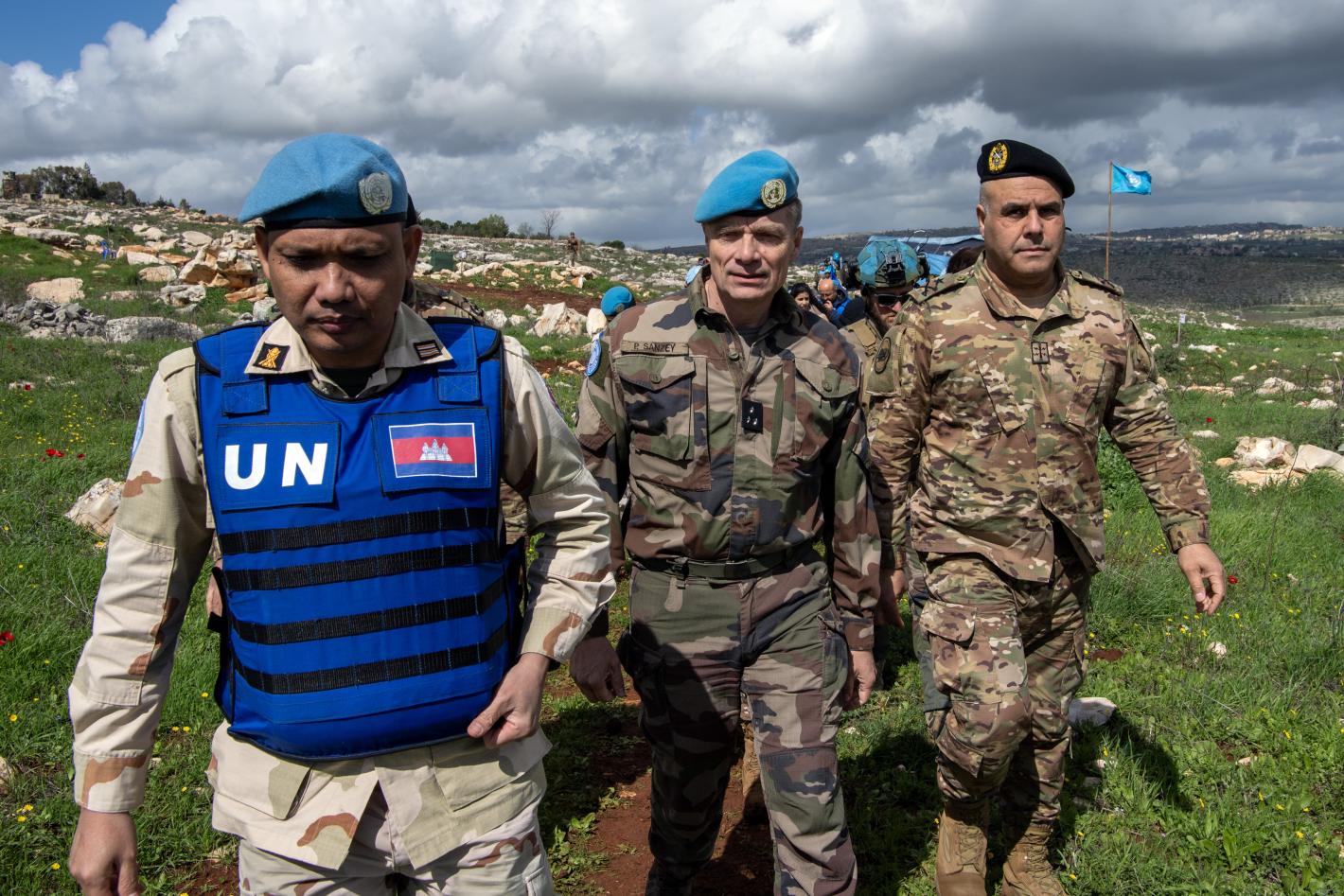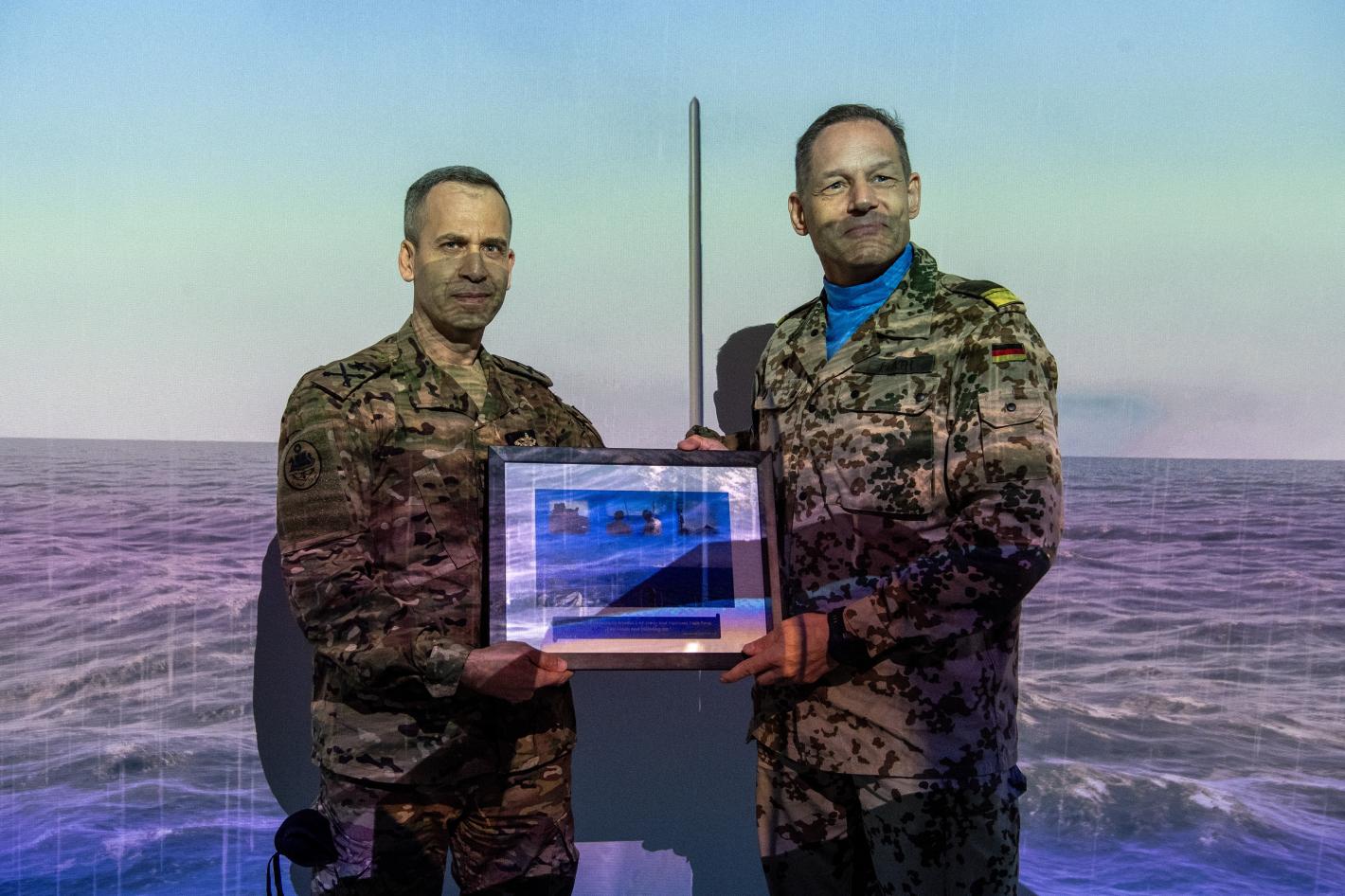The United Nations Interim Force in Lebanon (UNIFIL) today observed the International Day of Mine Awareness and Assistance in Mine Action. A ceremony, organized by the United Nations Mine Action Support Team (UNMAST), was held at the UNIFIL Headquarters in Naqoura.
UNIFIL demining teams working in mine clearance, explosive ordnance disposal (EOD) and improvised explosive disposal device (IEDD) activities in UNIFIL's area of operations gave demonstrations including the use of explosive detective dogs, robots and mine demos with dogs.
Students from local schools participated in the event where they received mine awareness trainings and had the opportunity to see the demonstrations by demining teams from the Belgian, Cambodian, Chinese, French, Italian and Spanish contingents of UNIFIL . Also in attendance were representatives from the Lebanese Armed Force (LAF), Lebanese Mine Action Center (LMAC), local authorities and members of the International community.
The day was an opportunity to highlight the global problem of landmines and explosive remnants of war to the safety, health and lives of civilian populations, and to encourage governments to develop mine clearing programmes as well as highlight the response from the UN. The ceremony also provided an opportunity to raise people's awareness to the dangers posed by mines.
An estimated 425,000 landmines continue to pose a daily threat to Lebanon's communities and more than 18 square kilometres of land remain contaminated by cluster bombs. The contamination continues to deny communities access to large areas of prime agricultural or grazing land and has a direct impact on their lives.
As of 01 March 2013, UNIFIL demining teams had completed over 80,000 sq metres of mine clearance and over 4.6 million sq metres of Battle Area Clearance. During the process, 2,271 anti-personnel mines, 167 anti-tank mines, 3,419 unexploded ordnance, 92 unexploded bombs and 28,719 cluster bomblets have been destroyed.
During 2002–2008, mine clearance in southern Lebanon was coordinated by UN Mine Action Coordination Centre of Southern Lebanon (UNMACC-SL) as a partnership between the UN and Lebanese Armed Forces. With the transition of coordination authority to the Lebanon Mine Action Centre (LMAC) since January 2009, experts from UNMACC-SL – since renamed UNMAST - now operate as an integral part of UNIFIL's de-mining efforts.
UNIFIL mine clearance has also facilitated the construction of 165 marker barrels along the Blue Line, enhancing monitoring of the Blue Line by UNIFIL and the LAF, supporting security in the region in accordance with UN Resolution 1701.






